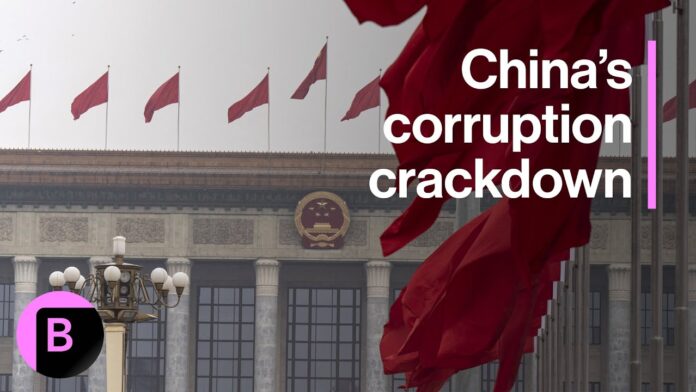China’s anti-corruption conference emphasizes intensified efforts, particularly in finance and energy, to increase transparency, accountability, and public trust, aligning with Xi Jinping’s broader initiative for economic stability.
China’s Anti-Corruption Initiative
China concluded a crucial three-day anti-corruption conference, pledging to strengthen efforts against corruption across various sectors. The government underscored extensive measures and accountability to eliminate corruption and uphold integrity. This move addresses concerns about corruption’s negative impact on governance and public confidence. The initiative aims to bolster enforcement and encourage nationwide transparency.
Targeting Key Sectors
China is intensifying anti-corruption actions in the finance and energy sectors, aligning with President Xi Jinping’s broader agenda for integrity in major industries. Scrutinizing these areas, the government seeks to remove corrupt practices threatening economic stability and public trust. Heightened oversight has led to dismissals, reflecting a zero-tolerance stance. As China reforms these sectors, it aims to promote sustainable growth and restore confidence in its institutions, marking a pivotal shift toward accountability in the global economy.
China’s ongoing anti-corruption campaign has intensified its focus on the finance and energy sectors, marking a significant shift in the country’s efforts to bolster economic integrity and political stability. This renewed scrutiny comes as China aims to curb systemic corruption that has long plagued its economic landscape, threatening both domestic growth and international credibility.
Within the finance sector, the campaign has zeroed in on banks and financial institutions, where officials are being investigated for misconduct ranging from bribery to mismanagement of funds. These probes are not just restricted to state-owned enterprises but also include private sector players, highlighting the broad scope of the government’s resolve to uproot entrenched corruption. Regulators are tightening compliance measures, and internal audits have become more rigorous, aiming to deter corrupt practices that can undermine financial stability.
Similarly, the energy sector, crucial for China’s industrial and economic prowess, is witnessing a crackdown. High-ranking officials and executives within state-run giants have been subjected to investigation, with charges often linked to illegal land deals, kickbacks, and fraudulent contracts. This sector is pivotal for China’s environmental objectives and global economic stance, thereby making its transparency a matter of national interest. The government’s actions demonstrate a clear message: no individual or entity is immune to scrutiny.
These measures reflect President Xi Jinping’s commitment to deepening the anti-corruption agenda that has been a central theme of his leadership. By targeting sectors integral to China’s economic infrastructure, the campaign reinforces the leadership’s dedication to creating a more accountable and sustainable growth model. While these actions may pose short-term challenges, such as disruptions in operations and investor confidence, the long-term goal is to foster a business environment that is conducive to ethical practices and fair competition.
Overall, the intensified focus on finance and energy underscores the complexities of governance and reform in one of the world’s largest economies, highlighting the challenges and necessity of maintaining integrity across core economic sectors.
Source : China Targets Finance and Energy Sectors in Anti-Corruption Campaign



